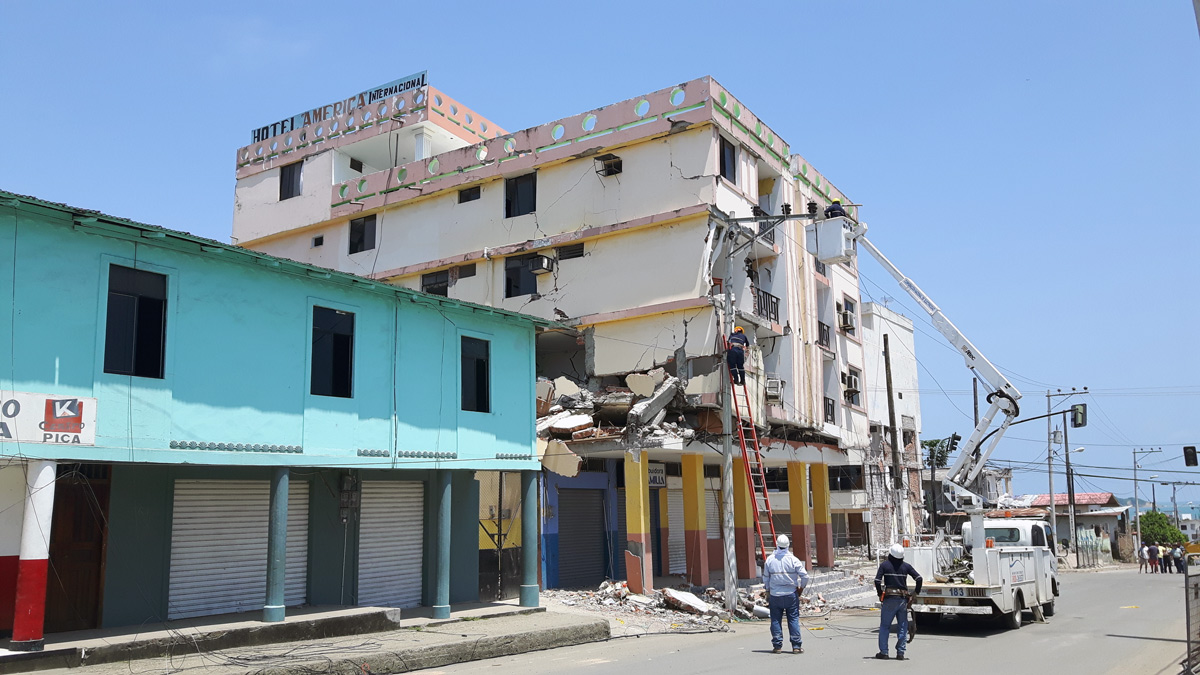The response to Ecuador's 7.8-magnitude earthquake went beyond just physically rebuilding the hardest hit cities

Disasters are never entirely natural; the risks inherent in our environment can be amplified or diminished by any number of factors, from culture to politics and economics.
Similarly, building back effectively after events like hurricanes and earthquakes is never a simple construction exercise. For engineers working in disaster relief, a strong understanding of the local context and an ability to collaborate with a wide range of stakeholders is as important as technical prowess.
For two Arup staff members who traveled to Ecuador in the wake of April’s 7.8-magnitude earthquake, these lessons were abundantly clear. Part of a UK-government-backed team of seismic experts, Anna Pavan from our Madrid office and Francisco Pavia from our Bogotá office spent 10 days assisting the Ecuadorian military’s relief efforts. Most of their work focused on Pedernales, one of the cities hit hardest by the quake.
Image credit: Arup
FULL STORY: Lessons learned in an earthquake's aftermath

Montreal Mall to Become 6,000 Housing Units
Place Versailles will be transformed into a mixed-use complex over the next 25 years.

Planetizen Federal Action Tracker
A weekly monitor of how Trump’s orders and actions are impacting planners and planning in America.

DARTSpace Platform Streamlines Dallas TOD Application Process
The Dallas transit agency hopes a shorter permitting timeline will boost transit-oriented development around rail stations.

Chicago Judge Orders Thousands of Accessible Ped Signals
Only 3% of the city's crossing signals are currently accessible to blind pedestrians.

Philadelphia Swaps Car Lanes for Bikeways in Unanimous Vote
The project will transform one of the handful of streets responsible for 80% of the city’s major crashes.

Interactive Map Reveals America's “Shade Deserts”
Launched by UCLA and American Forests to combat heat-related deaths, the tool maps the shade infrastructure for over 360 U.S. cities.
Urban Design for Planners 1: Software Tools
This six-course series explores essential urban design concepts using open source software and equips planners with the tools they need to participate fully in the urban design process.
Planning for Universal Design
Learn the tools for implementing Universal Design in planning regulations.
City of Mt Shasta
City of Camden Redevelopment Agency
City of Astoria
Transportation Research & Education Center (TREC) at Portland State University
US High Speed Rail Association
City of Camden Redevelopment Agency
Municipality of Princeton (NJ)



























